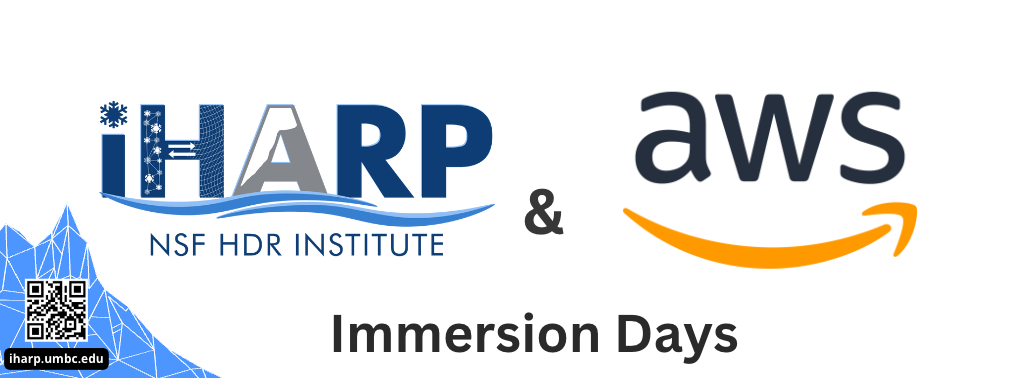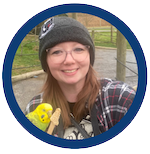
iHARP is a one of a kind NSF funded interdisciplinary institute that brings together expertise from Polar and Data sciences in order to tackle current climate change questions while advancing future climate change predictions. One of the many goals of iHARP researchers is to harness the power of data in order to contribute to climate science by creating scalable solutions . To accomplish this goal, iHARP has partnered with Amazon Web Services (AWS), in addition to Texas Advanced Computing Center (TACC), to begin exploring the expansion of iHARP's current scalable computing capabilities to build its open source data and models.
To begin the process of expanding resources, iHARP in collaboration with AWS hosted two Immersion Days that took place on March 28 - 29, 2023. The Immersion Days were hosted virtually to allow for maximum accessibility and equity in participation as iHARP has researchers expanding from Maryland to Alaska. The immersion days offered the ability for iHARP researchers to learn about AWS services and products from the AWS experts while gaining hands-on experience through training labs. The first set of Immersion Days focused on the initial introduction to cloud computing, building and deploying machine learning (ML) models, and high performance computing (HPC).The training provided is a vital next step to furthering iHARP's research power and its ability to harness the power of Data. Next steps include additional training specifically geared towards Geo-spatial data, open source data, and accessing current open source data. The partnership and collaboration between iHARP and AWS is one of many steps iHARP is taking to further climate change research and improve the data models available to researchers around the world.
iHARP would like to thank the many AWS representatives that came out to support the AWS Immersion days and iHARP. We would like to recognize Mark Nelson, Mike Thomas, JP Laverde, Robert Kras, Steve Fu, and Jianjun Xu from AWS for all their hard work and for making this event possible.

By Nikki Monczewski, M.S. '22, human centered computing